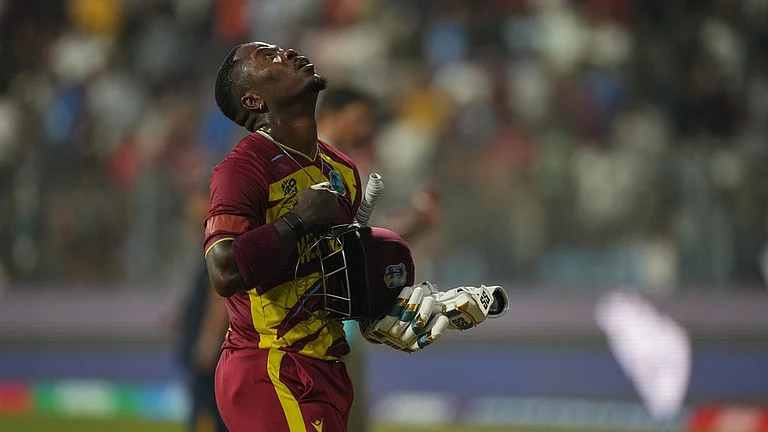The mosque authorities have filed an objection to the survey at Gyanvapi mosque complex in a Varanasi court.
The objection was filed against a petition seeking a direction to the Archaeological Survey of India (ASI) to survey the entire Gyanvapi mosque complex.
Earlier on May 19, the Supreme Court had deferred a scientific survey, including carbon dating, to determine the age of the structure found in the complex that was claimed to be a 'shivling'. The Apex Court had said that the order of the Allahabad High Court merited closer scrutiny.
The SC order had come on the plea of the Anjuman Islamia Masjid Committee against the high court's May 12 order for the determination of the age of the structure using modern technology.
What's the case about?
After the Allahabad HC's May 12 order, the Varanasi district court had on May 16 agreed to hear a plea for a survey by the ASI of the entire Gyanvapi mosque premises located next to the Kashi Vishwanath temple.
On Monday, Rajesh Mishra, special counsel for Gyanvapi and Adi Vishweshwar cases, told PTI that the Masjid Committee filed its objection in the court of District Judge AK Vishwesh to the petition. He said that the court has fixed July 7 for the next hearing.
The Masjid Committee, its objection, contended, that a petition of the Uttar Pradesh Sunni Central Waqf Board and another petition against the April 8, 2021 order of the Civil Judge (Senior Division) of Varanasi for a survey of the Gyanvapi-Shangar Gauri complex by the ASI is pending in the High Court. The court has reserved its decision on both petitions.
In such circumstances, the question of conducting an ASI survey again on the same property and the same point does not arise, it said while urging the court to dismiss the petition.
"The report of the commission or the report given by the ASI after investigation cannot be called for the purpose of collecting evidence. Actual facts relating to the building cannot be proved by oral evidence. In such a situation, the application seeking an ASI report to collect evidence is against the law and is not legally sustainable," the Committee also said.
Mishra said that the Anjuman Intezamia Masjid Committee was supposed to file its objection on May 19 but could not do so due to the hearing in the Supreme Court.
What did the SC say earlier?
An apex court bench headed by Chief Justice D Y Chandrachud had issued notices to the Centre, the Uttar Pradesh government and the Hindu petitioners on the plea of the Masjid Committee against the May 12 high court order.
"Since the implications of the impugned order merit closer scrutiny, the implementation of the directions concerned in the order shall stand deferred till the next date," the bench also comprising justices P S Narasimha and K V Vishwanathan said.
Solicitor General Tushar Mehta, appearing for the Uttar Pradesh government, expressed concerns regarding damage to the structure during the process and said the government will examine in consultation with the Archaeological Survey of India if there is an alternative method to ascertain the age of the "Shivling" found at Gyanvapi.
The high court had obtained a report from various institutions, including the IITs in Kanpur and Roorkee, and the Birbal Sahni Institute in Lucknow, before ordering for determination of the age of the structure.
The ASI, in its 52-page report, had given the opinion that the age of the structure can be determined through scientific methods without causing any harm to it.
What's the broader Gyanvapi case about?
The cases around Gyanvapi complex stem from a a petition filed by five Hindu devotees in August 2021 which seeks rights to pray daily before Hindu idols on the outer walls of Gyanvapi Mosque.
In the hearing of the petition, a videography survey was ordered. During the survey, the 'Shivling' was found close to the "wazookhana" —ablution pond— in the mosque. It is this 'Shivling' whose carbon dating was sought. The mosque committee opposed this, saying it was not a Shivling but a fountain.
(With PTI inputs)


























